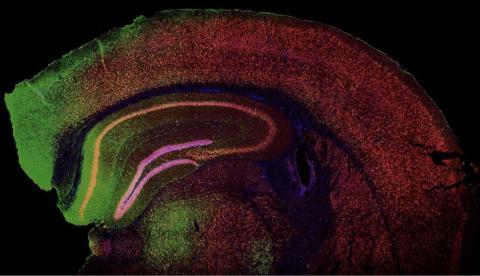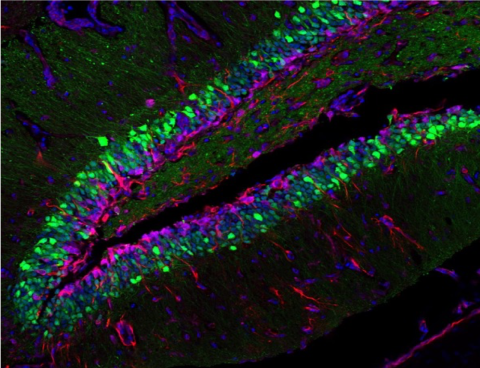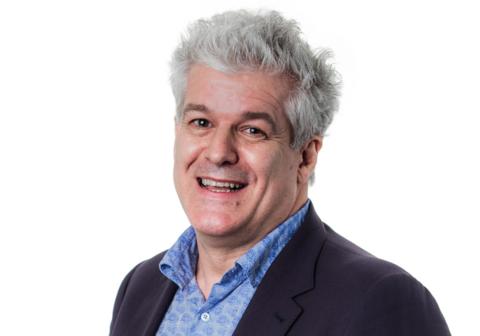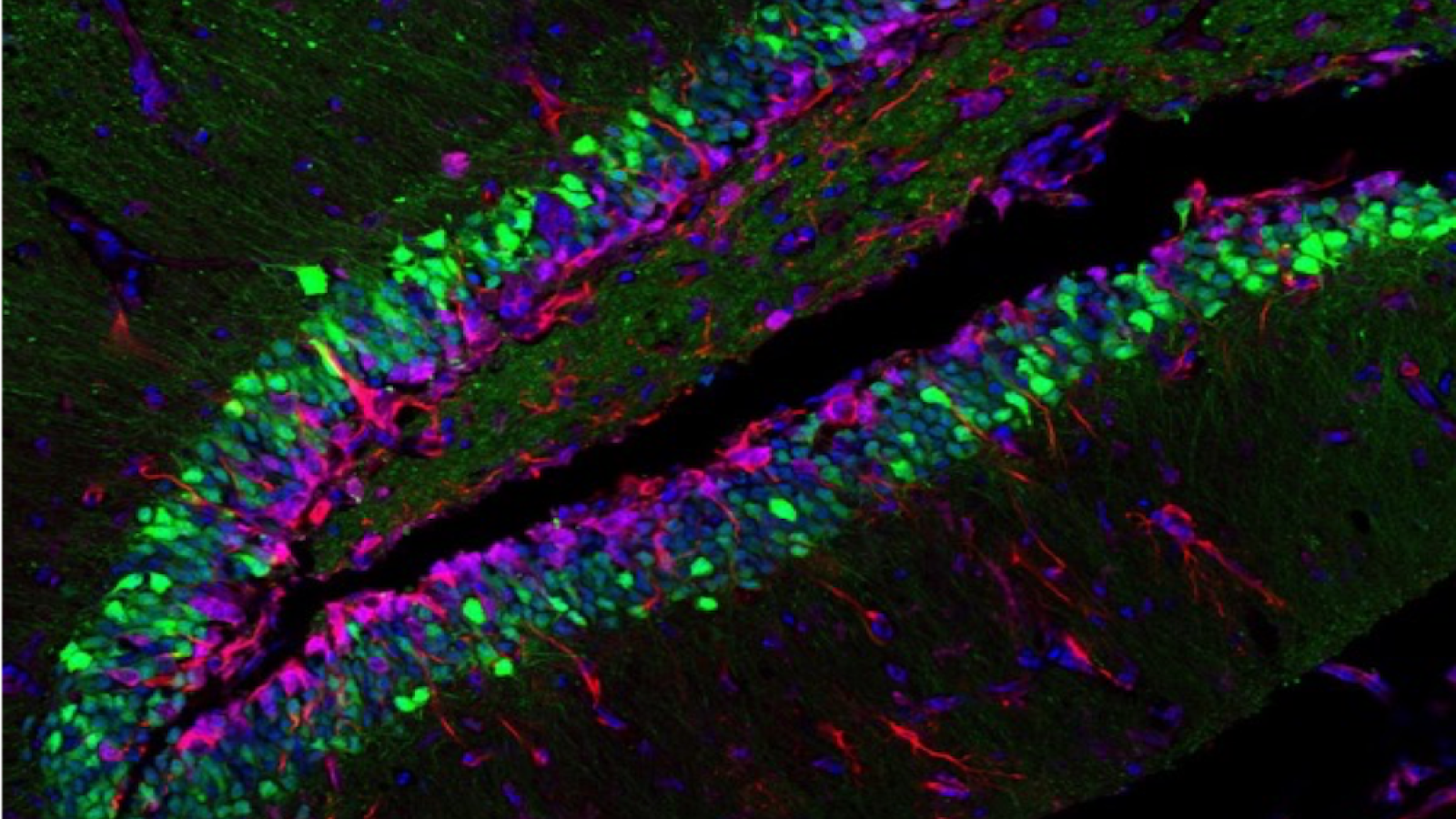
Launched in 2019 led by UK DRI Group Leader Prof Chris Shaw, the adeno-associated virus (AAV) vector core aims to assist with the design and pre-clinical validation and clinical trials of AAV vectors capable of delivering long lasting, cost effective and safe therapies for neurodegenerative diseases. Adeno-associated viruses (AAV) are small viruses that can be engineered to deliver DNA to target cells. The ability to generate recombinant AAV particles lacking any viral genes and containing DNA sequences of interest for various clinical applications is a promising strategy for gene therapies.
The team are specialists in the production of high-quality AAV, which they apply the Centre’s research into frontotemporal dementia (FTD) and amyotrophic lateral sclerosis (ALS). They also advise UK DRI researchers across the Institute on the development, safety and efficacy testing and production of novel AAV tools.
In 2021, UK DRI spin-out AviadoBio was launched, co-founded by Prof Shaw along with neurobiologist Dr Youn Bok Lee and vector biologist Dr Do Young Lee. The company aims to use the patented UK DRI gene therapy platform to develop treatments initially for Frontotemporal dementia (FTD) and Amyotrophic Lateral Sclerosis (ALS, motor neuron disease, MND).
Frontotemporal dementia is a progressive neurodegenerative disease affecting the frontal and temporal lobes of the brain and is the second most common form of young-onset dementia (<65 years). FTD is characterised by changes in personality, behaviour and language, rather than short-term memory deficits seen in Alzheimer’s disease. ALS/MND causes progressive muscle paralysis affecting limb movements speech and swallowing, leading to death from respiratory failure within 3-5 years. Crucially, there are no treatments that can slow or halt progression of either disease.
AviadoBio focuses on gene therapy as an approach to treat neurodegenerative diseases, based on the principle of delivering DNA into cells to supplement or knock down mutated genes. They use adeno-associated (AAV) to carry these gene therapies with precision, targeting specific cells while delivering broader effect through the nervous system.
News



Collaborators


UK DRI labs

